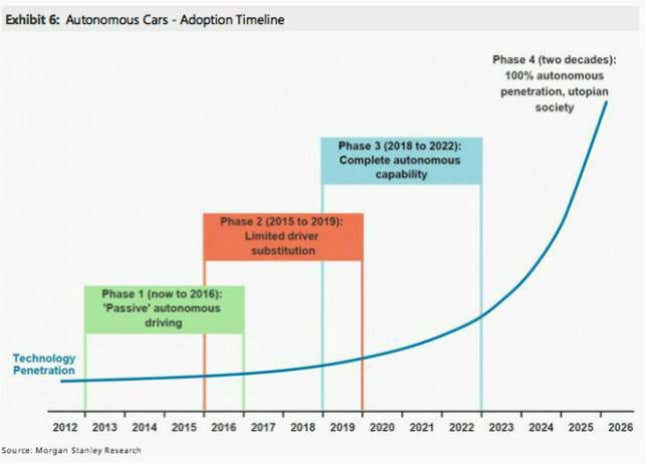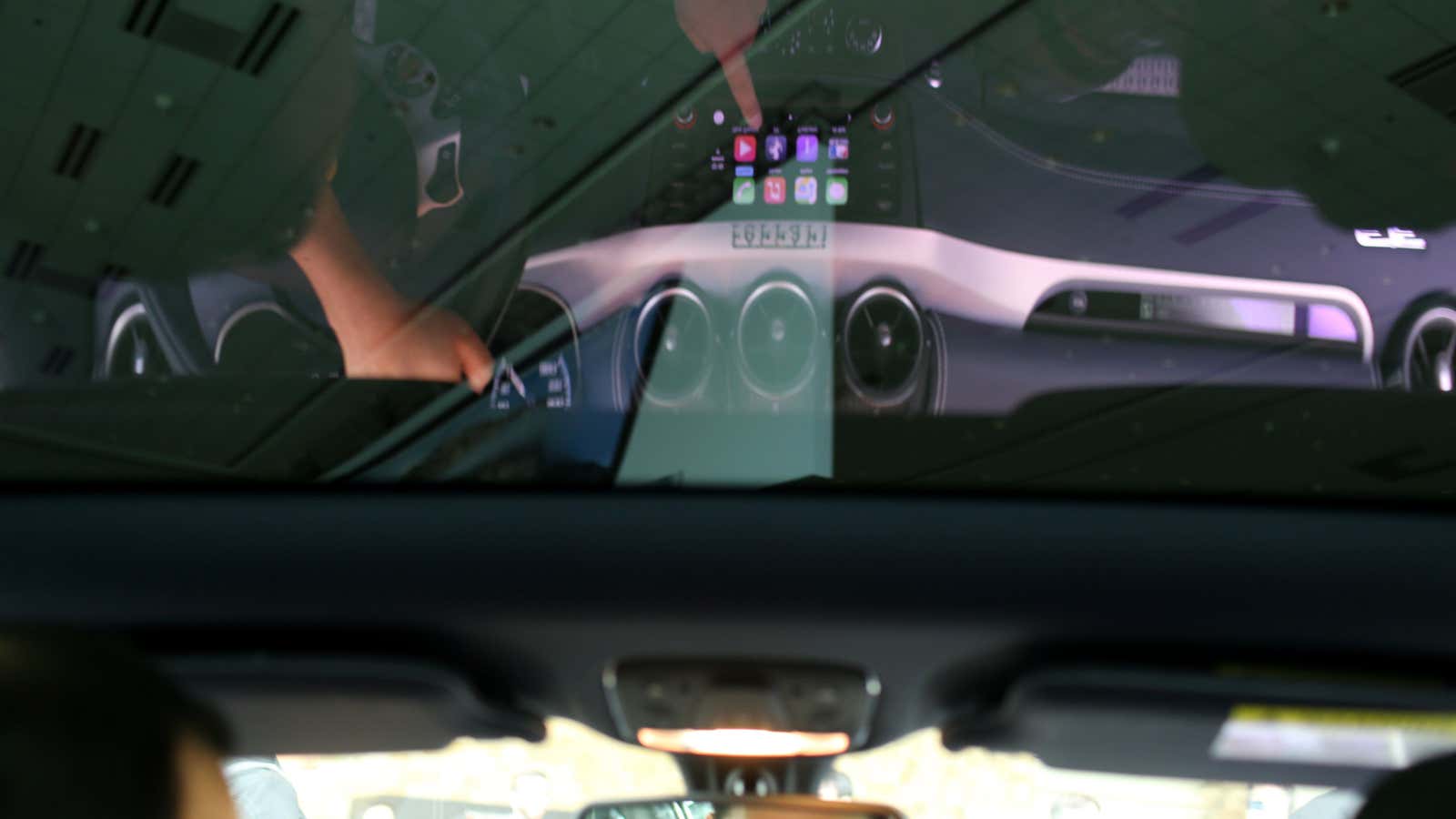Driverless cars have been thrust back into the news because, well, Apple. Reuters reported on Saturday (Feb. 14) that the iconic device giant is trying to “learn how to make a self-driving electric car”. This contradicts a report the day before (paywall) from the Wall Street Journal which said that Apple has hundreds of employees working on an electric minivan, but a “self-driving car is not part of Apple’s current plan.”
It’s reasonable to suppose that Apple is at least thinking about self-driving cars. (As it tends to, Apple is keeping silent and declined to comment to Quartz on the matter). Last year, Morgan Stanley analysts famously envisaged that a self-driving utopia could be upon us in a little more than a decade’s time. They project that this could save the US economy up to $1.3 trillion a year by reducing accidents, congestion, and fuel consumption, while increasing productivity (as people could work while their cars do the driving).

If (a big if) that were to happen, it would change society dramatically. Also, Google is very interested in self-driving cars, and it would be almost negligent for Apple to ignore what its rival is doing.
But Apple might also be choosing to bide its time. In a paper published last month (pdf), Michael Sivak and Brandon Schoettle from the University of Michigan’s Transportation Research Institute questioned the benefits of driverless cars, at least in the immediate future.
The researchers looked at various studies on road accidents and concluded that it’s not clear a self-driving car would ever be safer than an experienced middle-aged driver (the safest age group). Not all accidents are caused by drivers: 80% of accidents involving pedestrians at crossings are the fault of the pedestrian, they say. Weather, road conditions and vehicle failure can also be factors. None of these will be eliminated by autonomous vehicles.
Moreover, human drivers and autonomous cars could be sharing roads for several decades. Humans won’t be able to use eye contact with driverless cars to predict the behavior of autonomous cars or get feedback signals, a key aspect of how they interact with other drivers currently, according to the paper.
Finally, while autonomous vehicles may reduce car ownership rates—a family, for instance, could own one car instead of two, and send it to pick up any family member who needs transport—each car would spend more time on the road, so it’s not clear there would be less traffic.
In any case, if Apple is indeed building a car, then whether it’s self-driving or not may be a moot point, argues the Verge: With the regulatory changes that are likely in the next few years, “by the time an Apple car is on sale, it wouldn’t be viable in the marketplace without some manner of autonomous capability.”
But as the article also points out, Apple rarely leads the market, preferring to let others develop new products, then create its own, better version. Then again, one analyst has already suggested that all reports of an Apple car are at least partly a PR stunt to keep investors interested in the company.




